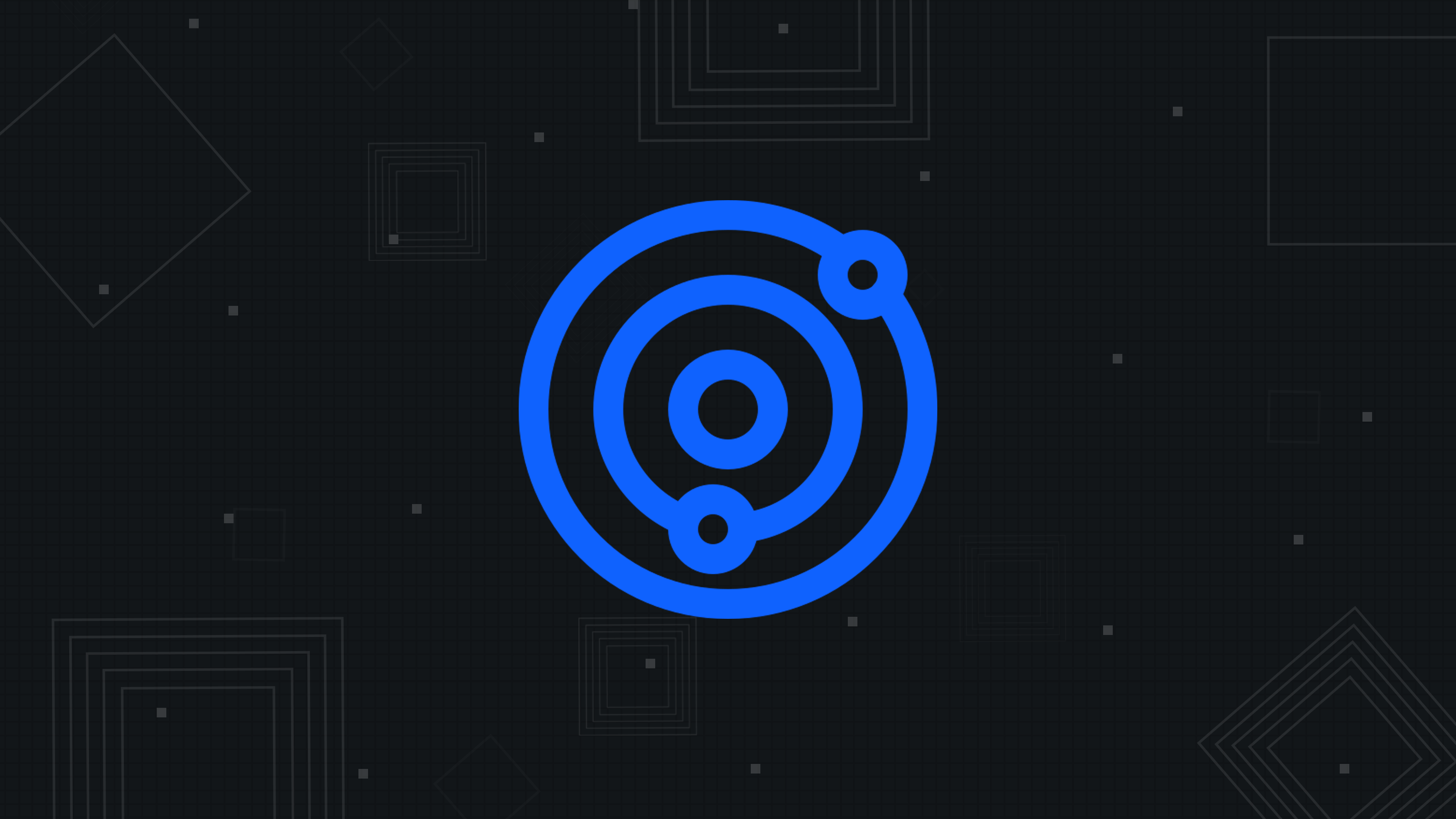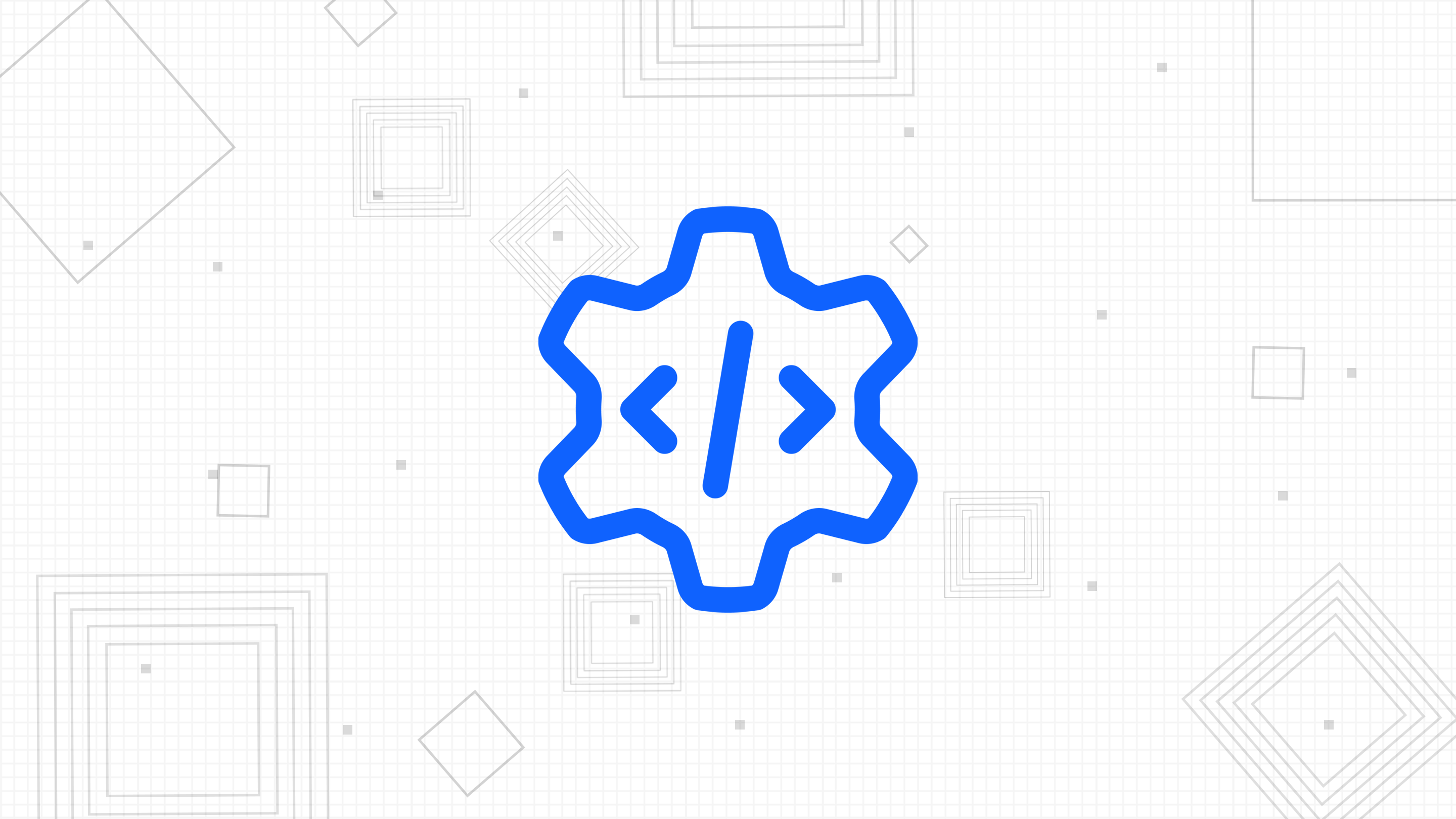Oracle Network.
Step into the future of decentralized technology with the Kenshi Oracle Network. Designed for robustness and versatility, our Oracle Network provides a secure and seamless framework for integrating real-world data into your blockchain applications. Experience the difference of custom-designed oracles, fault-tolerance, and compatibility with EVM-based blockchain networks.
With the Kenshi Oracle Network, realize your blockchain project's potential and redefine what's possible in the digital realm. Discover the power of reliable, scalable, and efficient blockchain solutions. Welcome to the Kenshi Oracle Network - where blockchain meets the real world.
Unleash the Power of Custom Oracles
-
Create and deploy your custom oracle using familiar technologies. Kenshi Oracle Network lets you develop solutions that meet your specific needs, providing a seamless and personalized blockchain experience.
-
Our Oracle Network is built to be asynchronous and fault-tolerant, ensuring continuous and reliable operation. Experience the peace of mind knowing your blockchain solutions can withstand and recover from potential disruptions or failures.
-
Kenshi Oracle Network is serverless, meaning it scales automatically to meet your needs. Without the need to manage servers, you can focus more on your project and less on the infrastructure, improving efficiency and reducing operational costs.
-
Designed to operate with EVM-based blockchain networks, Kenshi Oracle Network provides broad compatibility and integration potential. Benefit from the flexibility to deploy your oracles on Ethereum, Binance Smart Chain, or other EVM-compatible blockchains.
-
Harness the power of real-world data within your blockchain solutions. Whether it's integrating weather data or verifying asset ownership, our Oracle Network can connect the physical and digital realms, enhancing the functionality and scope of your projects.
-
With our easy-to-follow example and comprehensive guide, creating your own oracle has never been easier. Kenshi Oracle Network is designed to be user-friendly, allowing both seasoned developers and blockchain newcomers to bring their ideas to life.
Unlock Infinite Possibilities: Use Cases of Kenshi Oracle Network
Blueprints for Success: Custom Oracle Templates at Your Fingertips
A very simple blueprint to start from. Extend this to create your custom functionality.
export const handler = async () => {
return {
statusCode: 200,
body: JSON.stringify({
method: "setTime",
args: [new Date().valueOf()],
maxGas: "100000000000000", // 0.0001 ETH
abort: false,
}),
};
};
// SPDX-License-Identifier: MIT
pragma solidity ^0.8.17;
contract Time {
uint256 timestamp;
event TimeRequest();
/**
* Emit and event that will be picked up by the Kenshi
* Oracle Network and sent to your oracle for processing
*/
function requestTime() external {
emit TimeRequest();
}
/**
* This method will be called by the Kenshi Oracle Network
* with the result returned from your oracle
*/
function setTime(uint256 time) external {
timestamp = time;
}
/**
* Public function to display the last retrieved timestamp
*/
function showTime() public view returns (uint256) {
return timestamp;
}
}
The following blueprint shows how to get price data from coingecko.com
import { ethers } from "ethers";
import fetch from "node-fetch";
const url =
"https://api.coingecko.com/api/v3/coins/kenshi/market_chart?vs_currency=usd&days=1";
export const handler = async () => {
const resp = await fetch(url);
const { prices } = await resp.json();
const average =
prices
.slice(-6) // last 30 minutes
.map(([_, price]) => price)
.reduce((a, b) => a + b) / 6;
return {
statusCode: 200,
body: JSON.stringify({
method: "setPrice",
args: [ethers.utils.parseUnits(average.toFixed(18)).toString()],
maxGas: "100000000000000", // 0.0001 ETH
abort: false,
}),
};
};
// SPDX-License-Identifier: MIT
pragma solidity ^0.8.17;
contract Price {
event PriceRequest();
event PriceRequestFulfilled(uint256 price);
/**
* Emit and event that will be picked up by the Kenshi
* Oracle Network and sent to your oracle for processing
*/
function requestPrice() external {
emit PriceRequest();
}
/**
* This method will be called by the Kenshi Oracle Network
* with the result returned from your oracle
*/
function setPrice(uint256 price) external {
emit PriceRequestFulfilled(price);
}
}
The following blueprint shows how to check if the user owns a specific amount of tokens or NFTs on another chain.
import { ethers } from "ethers";
const abi = ["function balanceOf(address) view returns (uint)"];
export const handler = async ({ body }) => {
const { entry } = JSON.parse(body);
const provider = new ethers.providers.JsonRpcProvider(process.env.RPC_ADDR);
const contract = new ethers.Contract(entry.event.args.token, abi, provider);
const balance = await contract.balanceOf(entry.event.args.user);
return {
statusCode: 200,
body: JSON.stringify({
method: "setBalance",
args: [entry.event.args.user, entry.event.args.token, balance.toString()],
maxGas: "100000000000000", // 0.0001 ETH
abort: false,
}),
};
};
// SPDX-License-Identifier: MIT
pragma solidity ^0.8.17;
contract Balance {
event BalanceRequest(address user, address token);
event BalanceRequestFulfilled(address user, address token, uint256 balance);
/**
* Emit and event that will be picked up by the Kenshi
* Oracle Network and sent to your oracle for processing
*/
function requestBalance(address user, address token) external {
emit BalanceRequest(user, token);
}
/**
* This method will be called by the Kenshi Oracle Network
* with the result returned from your oracle
*/
function setBalance(
address user,
address token,
uint256 balance
) external {
emit BalanceRequestFulfilled(user, token, balance);
}
}
The following blueprint shows how to get weather data
from
brightsky.dev
import { ethers } from "ethers";
import fetch from "node-fetch";
export const handler = async ({ body }) => {
const now = new Date();
const { entry } = JSON.parse(body);
// Solidity doesn't have floating point numbers;
// We divide lat and long by 100 for 0.01 precision
const lat = ethers.BigNumber.from(entry.event.args.lat).toNumber() / 100;
const long = ethers.BigNumber.from(entry.event.args.long).toNumber() / 100;
const url = `https://api.brightsky.dev/weather?lat=${lat}&lon=${long}&date=${now.toISOString()}`;
const resp = await fetch(url);
const { weather } = await resp.json();
return {
statusCode: 200,
body: JSON.stringify({
method: "setWeather",
args: [
entry.event.args.lat,
entry.event.args.long,
// Solidity doesn't have floating point numbers;
// We multiply the temperature by 100 for 0.01 precision
Math.round(weather[0].temperature * 100),
],
maxGas: "100000000000000", // 0.0001 ETH
abort: false,
}),
};
};
// SPDX-License-Identifier: MIT
pragma solidity ^0.8.17;
contract Weather {
event WeatherRequest(uint256 lat, uint256 long);
event WeatherRequestFulfilled(
uint256 lat,
uint256 long,
uint256 temperature
);
/**
* Emit and event that will be picked up by the Kenshi
* Oracle Network and sent to your oracle for processing
*
* Note: Solidity doesn't have floating point numbers,
* we assume lat and long are multiplied by 100 to elliminate
* the decimal part of them
*/
function requestWeather(uint256 lat, uint256 long) external {
emit WeatherRequest(lat, long);
}
/**
* This method will be called by the Kenshi Oracle Network
* with the result returned from your oracle
*/
function setWeather(
uint256 lat,
uint256 long,
uint256 temperature
) external {
emit WeatherRequestFulfilled(lat, long, temperature);
}
}
The following blueprint shows how to create your own VRF oracle. This example uses the Kenshi VRF libraries, which implement draft 10 of the IETF ECVRF.
import { decode, prove, getFastVerifyComponents } from "@kenshi.io/node-ecvrf";
import { createHash } from "crypto";
import Elliptic from "elliptic";
const EC = new Elliptic.ec("secp256k1");
export const getPublicKey = (privateKey) => {
const key = EC.keyFromPrivate(privateKey);
return {
key: key.getPublic("hex"),
compressed: key.getPublic(true, "hex"),
x: key.getPublic().getX(),
y: key.getPublic().getY(),
};
};
const fromHex = (hex) => Buffer.from(hex.slice(2));
const hash = (...args) => {
const sha256 = createHash("sha256");
for (const arg of args) {
sha256.update(arg);
}
return sha256.digest().toString("hex");
};
export const handler = async ({ body }) => {
const { entry } = JSON.parse(body);
// You can generate a private key using the `keygen` function
// exported by the @kenshi.io/node-ecvrf library
const publicKey = getPublicKey(process.env.VRF_PRIVATE_KEY);
const alpha = hash(
fromHex(entry.transaction.hash),
fromHex(entry.log.index),
fromHex(entry.block.address),
fromHex(entry.event.args.requestId)
);
const proof = prove(process.env.VRF_PRIVATE_KEY, alpha);
const fast = getFastVerifyComponents(publicKey.key, proof, alpha);
const [Gamma, c, s] = decode(proof);
return {
statusCode: 200,
body: JSON.stringify({
method: "setRandomness",
args: [
[Gamma.x.toString(), Gamma.y.toString(), c.toString(), s.toString()],
`0x${alpha}`,
[fast.uX, fast.uY],
[fast.sHX, fast.sHY, fast.cGX, fast.cGY],
entry.event.args.requestId,
],
maxGas: "100000000000000", // 0.0001 ETH
abort: false,
}),
};
};
// SPDX-License-Identifier: MIT
pragma solidity ^0.8.17;
import "@kenshi.io/vrf-consumer/contracts/VRFUtils.sol";
contract VRFOracle {
uint256 _requestId;
mapping(uint256 => bool) alreadyFulfilled;
event RandomnessRequest(uint256 requestId);
event RandomnessRequestFulfilled(uint256 requestId, uint256 randomness);
VRFUtils utils;
constructor(bytes memory publicKey) {
utils = new VRFUtils();
utils.setPublicKey(publicKey);
}
/**
* Emit and event that will be picked up by the Kenshi
* Oracle Network and sent to your oracle for processing
*/
function requestRandomness() external {
emit RandomnessRequest(_requestId++);
}
/**
* This method will be called by the Kenshi Oracle Network
* with the result returned from your oracle
*
* Note: We encourage reading IETF ECVRF drafts to understand
* what's going on: https://datatracker.ietf.org/doc/html/draft-irtf-cfrg-vrf
*/
function setRandomness(
uint256[4] memory proof,
bytes memory message,
uint256[2] memory uPoint,
uint256[4] memory vComponents,
uint256 requestId
) external {
require(!alreadyFulfilled[requestId], "Already fulfilled");
bool isValid = utils.fastVerify(proof, message, uPoint, vComponents);
require(isValid, "Cannot verify VRF results");
bytes32 beta = utils.gammaToHash(proof[0], proof[1]);
uint256 randomness = uint256(beta);
alreadyFulfilled[requestId] = true;
emit RandomnessRequestFulfilled(requestId, randomness);
}
}
Developer resources
We're here to help.
If you have any questions about Kenshi, our suite of products, or how we can assist you in your journey towards building custom solutions on the blockchain, please reach out to us.
Our dedicated team is ready to provide you with the information and support you need. Whether you're a seasoned developer, a business looking to leverage the power of blockchain, or simply curious about our platform, your inquiries are always welcome.
You can contact us directly through this form or reach us at our email
inquiries@kenshi.io
We strive to respond to all inquiries as quickly as possible. Your journey into the world of Web 3.0 starts here. Get in touch with us today.
Read our latest articles
Stay ahead of the curve with Kenshi's insightful blog! Dive into a wealth of knowledge with our expertly crafted articles, covering the latest trends, tips, and breakthroughs in blockchain technology and Web 3.0.


